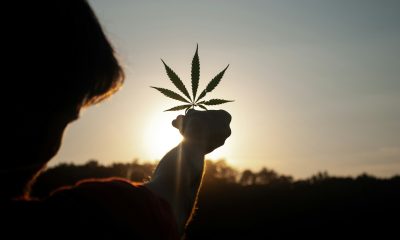Biotech
Taking a look at ketamine and the antidepressant market
One report stated that the antidepressant market is forecasted to reach $7.3 billion by 2024.

According to a White House study, Americans spent $109 billion on illegal drugs in 2010, according to The Fix. It is about the same amount spent on illegal narcotics in 2000, which is at $108 billion.
Likewise, The Huffington Post reported that the demand for illegal substances increased in the past decade. From 2006 to 2010, the act of consuming marijuana received an increase of over 30 percent. Cocaine had a different story—its use dropped almost 50 percent. However, what remained stable was heroin consumption.
On the other side of the Atlantic, the European Monitoring Center for Drugs and Drug Addiction and Europol indicated that in 2013, cannabis, heroin and cocaine were among the most widely used drugs in the region, per The Wall Street Journal.
About 22 million residents in the European Union were estimated to use cannabis in 2015, which generated €9.3 billion in sales. On the other hand, annual heroin sales were pegged at €7 billion, and sales of cocaine reached €5 billion. In total, illegal drug sales in the European Union could have reached up to €31 billion per year.
Apart from marijuana, cocaine and heroin, ketamine is another typically abused drug on the market. According to the World Health Organization (WHO), it is most often used for anesthesia and analgesia. The WHO also listed it as an essential medicine, meaning that it should always be available in adequate amounts.
Ketamine: more than just an analgesic
While ketamine has useful applications in the world of medicine, its illicit use can also lead to abuse. National Geographic reported that in 1999, the U.S. categorized ketamine as a Schedule III drug, while Canada named it as a Schedule I drug in 2005.
Meanwhile, in Hong Kong, the number of ketamine users has increased twofold since 2004 and has become the preferred recreational drug over ecstasy. In India, a kilo of ketamine can cost $290, and its international value can reach as high as $21,000.
Ketamine is considered as a dissociative anesthetic and is widely used in the partying scene. It is also considered to be stronger than speed or cocaine, making it easy to accidentally overdose on the drug. Aside from being taken by injection or snorted, ketamine is also smoked or ingested as a pill.

Ketamine can give you a gradual onset of thrill that eventually turns into euphoria and lasts for an hour followed by a long period of crash. (Source)
In the short term, ketamine gives users a sudden excitement boost that lasts usually one hour, giving them either an overwhelming feeling of relaxation or a full-body buzz. Some may even experience hallucinations.
On the other hand, ketamine’s long-term effects include the reduction of feeling pain, but when the drug’s effects have worn off, users might experience abdominal pain. Its other side effects include disorientation and fatigue. Users’ blood pressure and heart rate will also increase. Likewise, long-term ketamine use can also lead to kidney problems.
New medical breakthroughs in ketamine
Despite the illegal use of ketamine, doctors in the World Federation of Societies of Anaesthesiologists (WFSA) argued in 2016 that the drug should be excluded from the United Nations’ illicit drug restrictions list, per The Telegraph. They said that ketamine should be treated as a medicine because it is an essential drug for anesthesia and pain relief.
According to Dr. Jannicke Mellin-Olsen of the WFSA, “Ketamine is an essential anaesthetic painkiller, especially in countries with limited options and poor storage facilities in their hospitals.” Doctors also said when disasters strike, transferring ketamine is not difficult.
In the field of medical research into other applications of ketamine, research from Columbia University Medical Center clinically verified that ketamine could reduce major depressive symptoms in just a matter of hours, New Atlas reported. However, despite this finding, it remains unclear as to how the mechanism works. The drug earned its anti-depressant qualities because of its ability to obstruct a protein receptor in the brain.
A new study from China’s Zhejiang University, on the other hand, revealed that applying ketamine right into the lateral habenula area in the brain—considered by researchers as the “anti-reward center”—has led to a quick turnaround in the behavior of the depressed, which are rats in this study. The lateral habenula is stated to be relying on NMDA receptors, and ketamine is known to obstruct these receptors, which now has cleared the air surrounding the drug’s mechanism.
Antidepressant market slated to grow
Currently, antidepressants that are being sold today include selective serotonin reuptake inhibitors like Prozac and Zoloft and newer drugs like serotonin-norepinephrine reuptake inhibitors like Pristiq or Efexor. These antidepressant drugs target the brain’s neurotransmitters by blocking serotonin reuptake. It also traps the mood-stabilizing chemical in the gap between neurons for longer periods of time.
But according to a report from Informa Pharma Intelligence, antidepressants, including ketamine nasal spray, have a market value of $4.6 billion per year, with a forecasted growth of $7.3 billion by 2024, Tonic reported.
Informa Pharma Intelligence said that a new suite of depression drugs are being pushed for approval from the Food and Drug Administration. The new drug class includes ketamine and opioid, and they will boost the sales as they bring in $4.15 billion by 2024.

-

 Business1 week ago
Business1 week agoTopRanked.io Weekly Affiliate Digest: What’s Hot in Affiliate Marketing [Best Technology Affiliate Programs]
-

 Business3 days ago
Business3 days ago2.5 Billion People Watch Quiz Shows Every Day. Masters of Trivia (MOT) Is Letting Them Compete
-

 Crypto1 week ago
Crypto1 week agoBitcoin Steady Near $68K as ETF Outflows and Institutional Moves Shape Crypto Markets
-

 Business5 days ago
Business5 days agoDow Jones Stalls Near Record Highs as Inflation-Fueled Rally Awaits Next Move























You must be logged in to post a comment Login